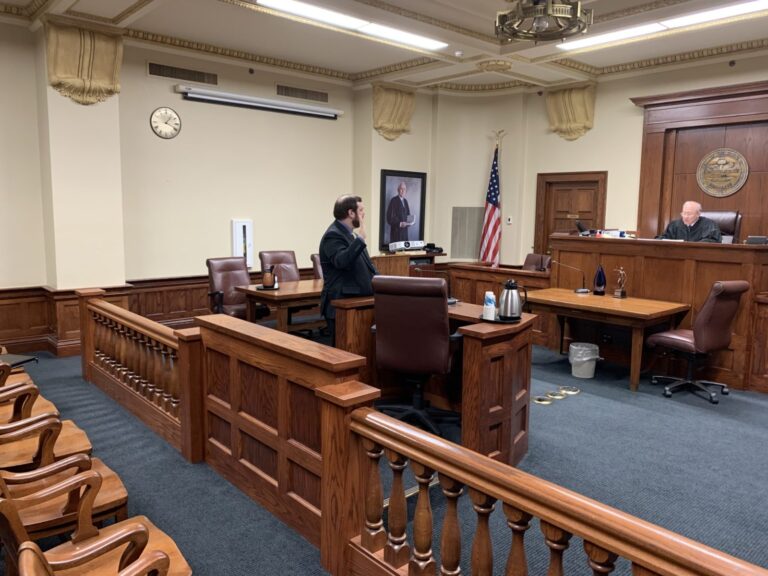
Navigating Back-to-School After Divorce in Athens, Georgia: Your Essential Legal Guide
The transition back to school for children in Athens, Georgia, following parental separation, often presents complex questions regarding custody, enrollment decisions, shared expenses, and emotional well-being. This comprehensive guide offers clear legal insights, actionable co-parenting strategies, detailed procedures for modifying existing plans, essential financial planning advice, recommendations for supporting your child’s well-being, clarification on record access rights, and guidance on when to seek professional legal assistance. By understanding Georgia’s custody framework, implementing effective communication, adjusting parenting plans as needed, managing financial obligations, providing psychological support, leveraging FERPA protections, and recognizing when legal counsel is vital, parents can confidently navigate these back-to-school transitions and steadfastly protect their child’s best interests.
Legal Back-to-School Guide for Divorced Parents in Athens, Georgia
Georgia law meticulously defines child custody through two primary categories: legal custody and physical custody. This framework clarifies which parent holds the authority to make crucial educational decisions and determines the child’s primary residence. This distinction is vital to ensure that all school-related choices align with both parents’ rights and, most importantly, serve the child’s best interests. For instance, a parent granted joint legal custody maintains shared authority regarding a child’s academic enrollment, promoting a collaborative approach to decision-making and fostering stability in the child’s educational journey.
Georgia Custody Law: Impact on School-Related Decisions
Under Georgia law, a clear distinction exists between legal and physical custody. Legal custody specifically grants parents the authority to make significant decisions concerning a child’s education. This distinction is crucial for clarifying parental responsibilities in school enrollment and other educational choices, ensuring that all decisions are made in the child’s best interests.
Georgia Code Title 19. Domestic Relations, Chapter 9. Child Custody (2024)
This foundational legal framework is essential for understanding how various custody arrangements directly influence school-related decisions throughout Georgia.
Legal vs. Physical Custody in Georgia: Understanding the Key Differences
Legal custody empowers a parent with decision-making authority over critical aspects of a child’s life, including education, healthcare, and religious upbringing. In contrast, physical custody dictates the child’s primary residence and governs their daily care routine. A clear understanding of these distinct roles is paramount to prevent misunderstandings regarding responsibilities such as signing enrollment forms or managing daily drop-off and pick-up schedules.
| Custody Type | Definition | Decision-Making Authority |
|---|---|---|
| Legal Custody | Grants authority to make significant decisions regarding a child’s welfare | Governs school enrollment, selection of educational programs, and academic choices |
| Physical Custody | Determines the child’s primary residence and day-to-day living arrangements | Manages daily logistics such as school drop-off, pick-up, and after-school routines |
A thorough understanding of these custody distinctions is fundamental for establishing clear school-related responsibilities and proactively preventing potential enrollment conflicts.
Joint Custody: Who Holds the Authority for School Enrollment and Educational Choices?
When parents share joint legal custody, they possess equal authority to make decisions concerning school selection, extracurricular activities, and special education services. Should a consensus prove unattainable, Georgia courts strongly encourage mediation as a primary resolution method. If mediation is unsuccessful, one parent may be required to petition the court for sole decision-making authority. This structured approach is designed to balance parental involvement while consistently upholding the child’s best interests.
Resolving School Choice Disputes in Georgia Family Courts: A Structured Approach
Georgia family courts address educational disputes through a carefully structured, three-step process. This begins with mediation, designed to facilitate a mutually agreeable resolution between parents. Following this, parents are typically required to complete the Athens-Clarke County Divorcing Parents Program. If an agreement remains elusive, the matter proceeds to a formal hearing where a judge will render a decision based on the paramount “best interest of the child” standard. This comprehensive approach is designed to foster cooperative solutions and ensure that all decisions prioritize the child’s academic stability.
The Athens-Clarke County Divorcing Parents Program: Its Role in School-Related Custody Matters
The Athens-Clarke County Divorcing Parents Program mandates that divorcing parents participate in educational classes focused on effective co-parenting and conflict resolution before final custody orders are issued. Through modules dedicated to communication strategies and proactive school planning, parents acquire invaluable tools to navigate enrollment discussions and significantly minimize potential disputes, thereby fostering expert-informed collaboration for their child’s benefit.
Effective Co-Parenting Communication Strategies for the Georgia School Year

Key Co-Parenting Communication Strategies
Effective co-parenting communication, encompassing tools like shared digital calendars and proactive teacher coordination, is fundamental to supporting a child’s academic success and emotional well-being. The strategic use of digital platforms and the establishment of consistent routines significantly reduce potential conflict and foster transparency, ultimately enabling children to thrive throughout the school year.
The American Academy of Pediatrics, “Effective Co-Parenting” (2023)
This research underscores the critical importance of clear communication and consistent routines in facilitating a child’s successful adjustment to school following parental separation.
Leveraging Shared Calendars and Digital Tools for School Schedules in Co-Parenting
Parents can significantly enhance schedule coordination by strategically adopting digital calendars and specialized co-parenting platforms. These tools facilitate real-time synchronization of school events, critical deadlines, and drop-off/pick-up times. Platforms such as Google Calendar, OurFamilyWizard, and Cozi offer features like color-coded assignments, automated reminders, and shared notes, ensuring both parents remain fully informed and aligned.
- Utilize Google Calendar for comprehensive joint event tracking and automated notifications.
- Employ OurFamilyWizard for secure messaging, detailed expense logs, and streamlined shared scheduling.
- Integrate Cozi for consolidated school calendars, collaborative to-do lists, and shared family journals.
Implementing digital coordination effectively minimizes miscommunication and ensures the timely planning of all appointments and activities, fostering greater harmony.
Best Practices for Coordinating Teacher Communication and School Events as Co-Parents
Maintaining open and consistent communication channels with teachers and school staff is paramount to ensuring both parents remain fully informed about their child’s academic progress and any behavioral concerns. Parents are advised to request joint access to online school portals, consistently copy each other on all relevant emails, endeavor to attend conferences together when feasible, and promptly share meeting notes to present a unified and supportive front for their child.
- Ensure both parents are subscribed to all grade-report systems and school newsletters.
- Strategically schedule parent-teacher conferences, either on alternating days or jointly, as appropriate.
- Promptly share comprehensive meeting summaries via email or a designated co-parenting application.
- Proactively provide the school with updated contact details and availability for both parents.
Proactive and collaborative engagement with educators significantly enhances co-parenting teamwork and strengthens the child’s essential support network.
The Role of Consistent Routines in Fostering Children’s Stability During the School Year
Establishing predictable daily and weekly schedules is crucial for reducing a child’s anxiety and building their resilience. Consistent wake-up times, dedicated homework sessions, and structured bedtime rituals provide essential anchors for children as they navigate parental transitions and the demands of their academic life.
- Implement consistent morning routines, including breakfast, backpack checks, and timely departures.
- Designate dedicated homework hours within a quiet, conducive study environment.
- Establish evening rituals, such as reading or device-free family time, to promote relaxation.
- Conduct weekly planning sessions to review and prepare for upcoming school activities and commitments.
These stable routines are instrumental in fostering emotional security and enabling children to concentrate on their learning, rather than being preoccupied by parental changes.
Navigating Extracurricular Activities and After-School Programs as Co-Parents
Co-parents must proactively coordinate extracurricular calendars, establish clear agreements on cost-sharing methods, and transparently plan all transportation logistics. Alternating responsibilities for practice pickups or dividing fees proportionally to each parent’s income ensures equitable participation and helps prevent potential resentment, fostering a more harmonious co-parenting dynamic.
- Establish a comprehensive shared activity calendar detailing all practices, games, and events.
- Formally agree upon proportional cost contributions or specific flat fee arrangements for activities.
- Systematically alternate transportation duties or collaboratively pool resources for carpooling.
- Communicate all deadlines for registrations and necessary equipment needs well in advance.
Collaborative planning for extracurricular activities not only enriches the child’s social and developmental experiences but also significantly reinforces the essential teamwork required in co-parenting.
Modifying Parenting Plans in Georgia: Accommodating School Schedules and Activities
Common Grounds for Modifying Parenting Plans Due to School-Related Changes
Parents frequently find it necessary to petition for modifications to their parenting plans when significant school-related changes occur. These often include shifts in school start or end times, a child’s advancement to new grade levels with altered schedules, the introduction of new sports or arts programs requiring time adjustments, or the necessity of specialized academic services.
- Alterations in school bell schedules necessitating revised drop-off and pick-up times.
- New grade-level requirements, such as the implementation of block scheduling or specialized lab periods.
- The addition of competitive sports, band, or tutoring sessions that demand significant time commitments.
- The need for special education or therapy appointments scheduled during school hours.
Proactively identifying these triggers enables families to act promptly, thereby maintaining stability and ensuring compliance with their child’s evolving educational needs.
The Georgia Court Process for Parenting Plan Adjustments: A Step-by-Step Guide
The court process for modifying an existing parenting plan is a formal sequence designed to ensure transparency and legal enforceability. It typically involves filing a modification petition, formally serving the other parent, completing mandatory mediation, attending a court hearing, and ultimately obtaining an amended court order that is meticulously based on the child’s best interests.
- Initiate the process by filing a formal petition in the county where the original order was issued.
- Ensure the petition is properly served upon the other parent, strictly adhering to Georgia state rules.
- Participate in mandatory mediation or parent education programs as required by the court.
- Present compelling evidence at the hearing, including current school calendars, detailed schedules, and relevant statements.
- Receive and diligently implement the revised, legally binding custody order.
Adhering to this precise sequence is crucial for securing a legally binding schedule that effectively aligns with your child’s evolving educational needs.
Essential Documentation for Supporting School Schedule Modifications
Courts require concrete and compelling evidence to thoroughly evaluate requests for parenting plan modifications. Essential documentation typically includes current and proposed school calendars, official enrollment letters, confirmations of extracurricular registrations, written statements from teachers detailing scheduling conflicts, and professional recommendations for academic or therapeutic programs.
- The official school calendar, clearly highlighting any new start or end times.
- Formal enrollment confirmations for after-school or specialized educational programs.
- Written statements from teachers or program directors addressing specific scheduling conflicts or needs.
- Professional notes or assessments supporting proposed academic or therapy schedule changes.
- Records demonstrating recent compliance with the existing parenting plan.
Providing comprehensive documentation significantly strengthens your petition arguments and is instrumental in guiding the court toward fair and informed judicial decisions.
Financial Responsibilities for School Expenses Post-Divorce in Georgia
School-Related Costs Typically Covered by Child Support in Georgia
Child support orders in Georgia typically encompass basic educational expenses, including but not limited to textbooks, uniforms, essential school supplies, transportation fees, and standard extracurricular costs, all as explicitly outlined within the divorce decree. By meticulously itemizing these expenses, such orders ensure consistent and reliable funding for a child’s core academic needs.
Dividing Uncovered School Expenses Between Parents Post-Divorce
For school expenses that fall outside the defined scope of child support, parents commonly divide costs proportionally to their respective incomes, agree upon fixed contributions per semester, or engage in mediation to achieve an equitable arrangement. Transparent record-keeping and providing advance notice of anticipated fees are crucial practices that effectively prevent last-minute conflicts and foster financial harmony.
| Expense Category | Child Support Coverage | Supplemental Parent Responsibility |
|---|---|---|
| School Supplies | Typically covered | Not applicable (N/A) |
| Field Trips | May be partially covered | Often split based on parental income ratio |
| Private Lessons | Not covered by default provisions | Requires agreed flat fee or prorated contributions |
| Sports/Club Fees | Included if explicitly specified in the order | Shared equally or as directed by the parenting plan |
Establishing clear and comprehensive expense-sharing guidelines is vital for reducing financial friction and enabling parents to effectively budget for both anticipated and unexpected educational costs.
Addressing College Savings and Educational Funds in Georgia Divorce Decrees
Couples have the option to formally incorporate provisions for 529 plans, education trusts, or dedicated savings accounts directly into their divorce decrees. This is achieved by meticulously assigning ownership, establishing clear contribution schedules, and specifying precise withdrawal guidelines. This structured approach is crucial for safeguarding long-term academic funding and unequivocally clarifying each parent’s financial commitment to their child’s future education.
- Formally allocate ownership of any existing college savings accounts.
- Establish clear and enforceable monthly contribution obligations for each parent.
- Precisely define withdrawal purposes and required approval processes within the divorce decree.
- Adjust child support calculations to accurately reflect designated educational fund contributions.
Embedding these educational savings provisions within the divorce decree is a proactive measure that effectively prevents future disagreements and secures the child’s vital post-secondary educational opportunities.
Supporting Your Child’s Emotional and Academic Well-being During the School Year Post-Divorce

The Emotional Impact of Divorce on Children During the Back-to-School Transition
Children frequently experience a range of emotional challenges, including heightened anxiety, difficulties with concentration, or social withdrawal, when returning to school after parental separation. The disruption of established routines and the potential fear of stigma can manifest as behavioral changes, such as increased irritability or clinginess, particularly during the initial days back at school.
- Elevated anxiety levels, particularly during drop-off times.
- Noticeable difficulty in sustaining attention or focus during class.
- Significant changes in peer interactions or a decline in social participation.
- Increased frequency of emotional outbursts or pronounced mood swings.
Recognizing these indicators promptly empowers parents to implement targeted support strategies that are crucial for promoting their child’s emotional recovery and stability.
Providing Academic Support and Accessing Resources for Your Child Post-Divorce
Active parental involvement in homework routines, arranging for tutoring when necessary, establishing strong connections with school counselors, and ensuring a quiet, conducive study environment are all vital steps to help children maintain their academic performance and confidence. Consistently sharing progress updates with teachers and strategically leveraging available school support services further bolsters a child’s academic stability.
- Consider enrolling the child in peer tutoring programs or after-school homework clubs.
- Schedule regular meetings with school counselors to monitor academic and emotional progress.
- Designate a consistent, distraction-free study area within the home environment.
- Collaborate closely with teachers to develop and implement personalized learning plans.
Proactive and collaborative academic engagement unequivocally demonstrates parental teamwork and is instrumental in supporting a child’s sustained academic achievement.
When to Seek Professional Help for Your Child’s Emotional or Educational Needs
Professional intervention becomes essential when a child’s emotional distress or academic decline persists beyond a few weeks, indicating a deeper underlying issue. Key warning signs that warrant professional evaluation include chronic absenteeism, significant drops of two or more letter grades, severe and persistent anxiety symptoms, and noticeable social isolation. Early engagement with counseling or specialized educational assessments can effectively address underlying challenges and significantly promote recovery and well-being.
- Persistent symptoms of anxiety or depression that do not abate.
- A significant decline of two or more letter grades across subjects.
- Consistent refusal to attend school or participate in previously enjoyed activities.
- Pronounced social withdrawal from peers and family members.
Timely and appropriate professional support is crucial for safeguarding a child’s overall well-being and ensuring a positive academic trajectory.
Divorced Parents’ Legal Rights: Accessing School Records and Information in Georgia
FERPA Protections: Parental Access to School Records Post-Divorce
The Family Educational Rights and Privacy Act (FERPA) unequivocally mandates that both biological and legal parents retain equal rights to inspect and review their child’s educational records. This right remains intact unless a specific court order explicitly revokes or limits such access. This crucial federal safeguard applies to all educational institutions receiving federal funding and is designed to ensure transparent and equitable record sharing.
Georgia state statutes further complement FERPA protections by explicitly prohibiting schools from restricting parental access to records unless there are documented custody limitations in place. This reinforces each parent’s fundamental right to access essential documents such as report cards, academic transcripts, and disciplinary records.
Georgia-Specific Rules for Accessing Grades, Attendance, and School Communications
In Georgia, schools are legally obligated to honor parental requests for records. This typically involves submitting a formal written request, verifying the requesting parent’s custodial status, and providing copies within a defined, reasonable timeframe. Should one parent’s rights be restricted, a certified court order explicitly outlining these limitations must accompany any request to override default access privileges.
Parental Participation in Parent-Teacher Conferences and School Activities
Both Georgia law and established school policies permit both parents to attend parent-teacher conferences, open houses, and extracurricular events, irrespective of their specific custody arrangement. By proactively providing the school with updated contact information and clearly specifying desired invitations, parents ensure they have an equal opportunity to actively engage in their child’s educational life and collectively demonstrate unified support.
When to Seek Legal Counsel for School-Related Custody and Enrollment Issues
Indicators That Your Parenting Plan Requires Modification for School Matters
Persistent recurring scheduling conflicts, consistently missed registration deadlines, repeated miscommunications regarding school events, or unresolved financial disagreements concerning educational fees are clear indicators that your existing parenting plan warrants a thorough legal review. Identifying these patterns early is crucial to prevent significant disruption to your child’s academic life and overall well-being.
How Samuel Thomas Law Can Assist with School-Related Divorce Issues in Athens, Georgia
Samuel Thomas Law offers unparalleled expertise, combining in-depth knowledge of Georgia family law with extensive local practice experience in Athens-Clarke County. We are dedicated to effectively resolving complex custody modifications, challenging enrollment disputes, and intricate expense disagreements. Through personalized consultations, strategic mediation, and assertive courtroom advocacy when necessary, our firm steadfastly supports parents in securing clear, legally enforceable agreements that consistently prioritize the child’s best interests.
Scheduling a Consultation for School-Related Family Law Matters
To initiate legal support with our firm, we invite parents to contact Samuel Thomas Law by phone or email. Upon providing an overview of your specific situation, you will receive prompt confirmation for your appointment. Preparing all relevant documents—including existing court orders, school calendars, and any pertinent communication records—will ensure an efficient case evaluation and the development of a tailored, effective action plan.
- Contact our office by phone or submit a detailed inquiry via email.
- Provide all existing custody orders and relevant school-related documentation.
- Confirm your scheduled consultation date and meticulously gather any additional necessary evidence.
- Attend your in-person or virtual meeting to comprehensively explore your legal options.
Taking this crucial first step empowers parents to proactively protect their child’s educational future, fully aligned with Georgia law.
Samuel Thomas Law stands ready to expertly guide your family through the inherent complexities of school planning following a divorce in Athens, Georgia. We encourage you to reach out to us today to ensure your parenting plan, financial arrangements, and communication strategies are meticulously aligned with your child’s best interests, thereby supporting a successful and stable school year.



